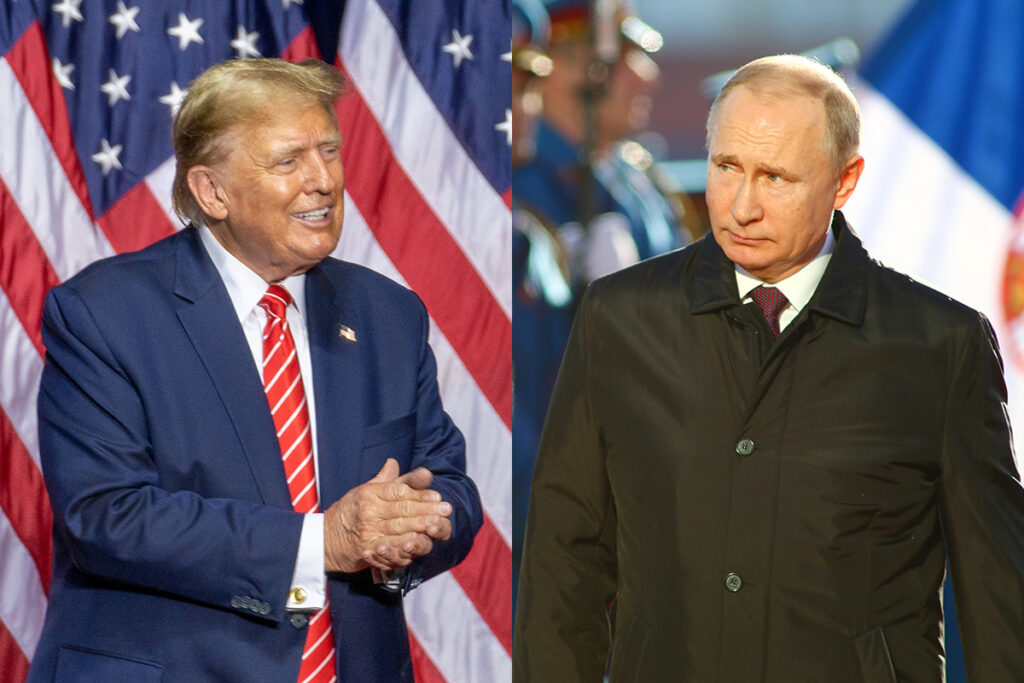U.S. President Donald Trump and Russian President Vladimir Putin are set to hold a crucial conversation on Tuesday regarding the ongoing war in Ukraine. The discussion, which Trump disclosed while traveling on Air Force One, marks a potential turning point in efforts to negotiate an end to the conflict. The Kremlin later confirmed the scheduled call, though Russian officials declined to provide details in advance.
The meeting comes amid ongoing tensions in Eastern Europe, where Russia continues to occupy large portions of Ukrainian territory. Although Moscow’s initial objective of overthrowing Ukraine’s leadership failed, it still maintains control over significant regions. Russia’s illegal annexation of Donetsk, Luhansk, Kherson, and Zaporizhzhia in 2022 remains a major sticking point in negotiations, as it does not fully control any of these territories. Additionally, Putin has previously demanded Ukraine withdraw all troops from these regions as a condition for peace.
The discussion between the two leaders is expected to focus on territorial issues and energy infrastructure. Trump has signaled that negotiations may involve the division of land and power plants, particularly as Russia continues to control the Zaporizhzhia Nuclear Power Plant—the largest in Europe. The facility has been at risk throughout the war, frequently caught in the crossfire, and international nuclear watchdogs have repeatedly raised alarms over potential dangers.
Trump’s efforts to reshape U.S. foreign policy and his approach to Russia have sparked concern among European allies. His stance on Ukraine, particularly his critical view of Ukrainian President Volodymyr Zelenskyy, has heightened skepticism in NATO circles. Just weeks ago, Zelenskyy faced harsh criticism from Trump during a visit to the Oval Office, fueling fears that U.S. support for Ukraine may shift under his administration.
Steve Witkoff, Trump’s special envoy, recently traveled to Moscow to help set the stage for the upcoming discussions. His visit suggests that diplomatic negotiations have been underway, with both sides working behind the scenes to prepare for possible outcomes from the high-profile call.
While the war in Ukraine remains a dominant issue, Trump is also pressing forward with his economic agenda. Despite recent market instability, he has reaffirmed his commitment to imposing new tariffs on April 2. The plan includes tariffs on industries such as automotive manufacturing, steel, and aluminum. Trump has framed these measures as an effort to reclaim economic wealth, indicating no plans to reverse course.
As the Tuesday conversation approaches, global attention will be focused on whether the discussion leads to tangible steps toward ending the war or further intensifies geopolitical tensions. With the war in its third year and diplomatic relations between Washington and Moscow under constant scrutiny, the outcome of the call could have significant implications for Ukraine, Europe, and the broader international order.


